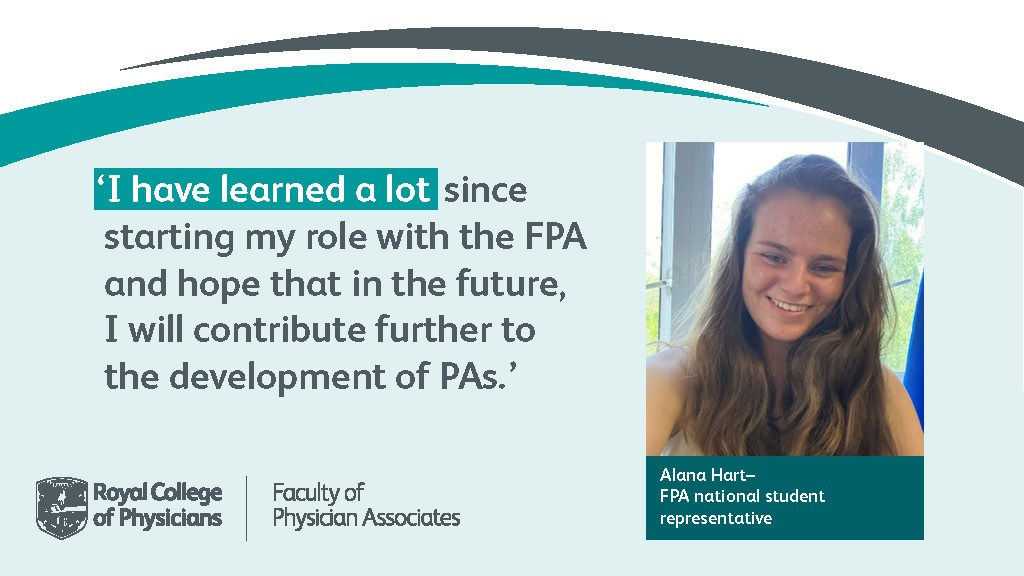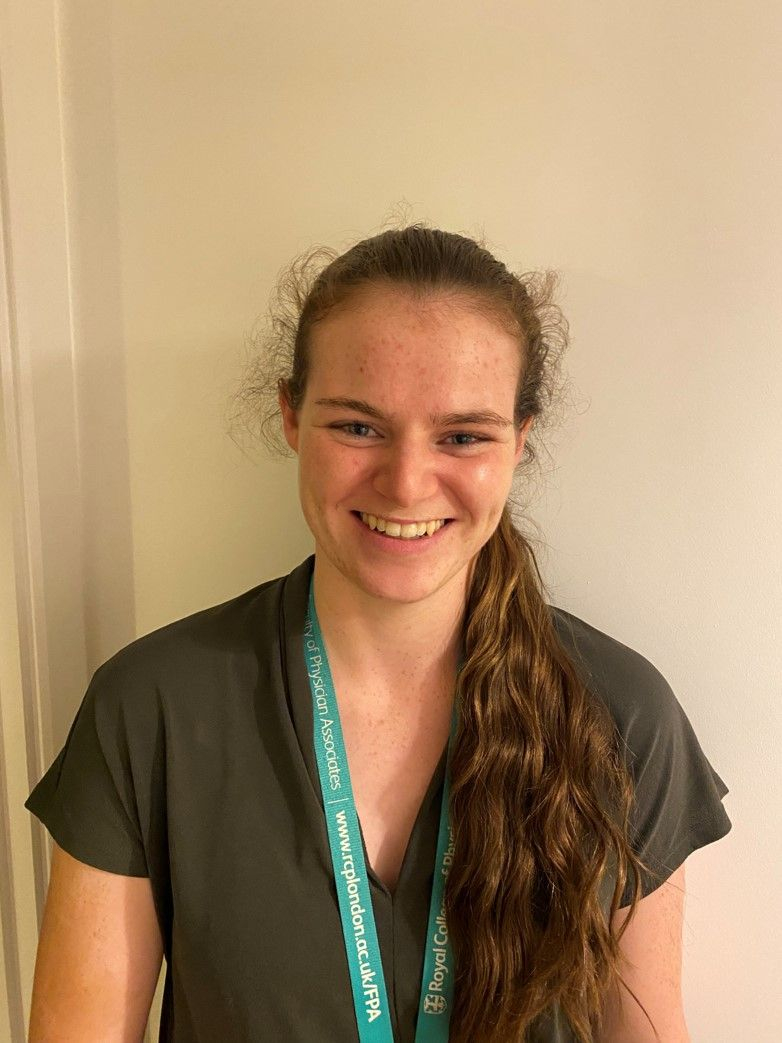FPA national student representative case study
As the FPA national student representative, what does your role involve, and how do you support fellow students?
My role involves the overseeing of the FPA Student Representative Group and acting as a conduit between the students and the FPA. The Student Representative Group consists of representatives from each university course; we meet regularly and discuss concerns and queries raised by students. Recent topics have included changes to exams and the student conference. I also sit on the FPA Board and receive updates on the profession, providing a student perspective on matters, finding out answers to students’ queries and suggesting proposals to improve students’ experience of training. I encourage any students with queries to reach out to their institution representative.

What have been your highlights since becoming FPA national student representative?
Since being elected, I have enjoyed working with other students across the country to hear about their experiences. The increasing number of PA courses means there is wide variation in how courses and placements are run – learning about these differences and sharing tips on how to thrive while on the course has been greatly beneficial.
I think the bond between the FPA and PA students is integral to the growth of the profession. I’ve been able to raise ideas to improve students’ experience and liaise with the FPA to develop them. It’s gratifying that this could benefit the PA student population in the future.
How have you found the PA course so far and what have been your highlights?
It’s no secret that the training to becoming a PA is intense, especially for those of us that started during the pandemic. During the lockdowns, I felt very grateful to have made many friends among my coursemates and it’s been a privilege to learn and grow with them.
The course also provides a great opportunity to develop skills tailored to working in the medical environment. Although it’s fast-paced, each week is varied and very rarely boring! I think learning a skill on teaching models and then being successful in using that skill with a real person is a very rewarding experience. Of course, it doesn’t always happen the first time, but it’s even more rewarding when you do succeed.
What has surprised or challenged you during the PA course?
Personally, OSCEs were a big surprise – like nothing I’d ever done before. It took some time to adjust to that type of examination, and initially I felt as though a background in drama would’ve prepared me better than my degree in biomedical science! After some practice, I felt more comfortable saying my thoughts out loud and the process came more naturally. My advice to any new PA student would be to keep practising the narration, even if it means talking to your pillow.
I did my secondary care placement in a trust with very few PAs, and so it was no surprise that I had to regularly explain the role of PAs: what we do and how we differ from other roles. As the placement continued and staff saw how we worked and contributed, they understood how we fit into their team, and by the end of the placement they would often be disappointed that we were leaving – and had become much more supportive and understanding of our role. Some people challenged my choice to become a PA; they couldn’t understand why I was so ‘smart’ and ‘bright’ but didn’t want to be a doctor. I think applicants and students should be aware that you could face this attitude during placements, and that having confidence in your career choice is important, but if there are any serious incidents, ensure they are reported appropriately.
 What advice would you give to someone looking to join the PA course?
What advice would you give to someone looking to join the PA course?
Do your research: understand the difference in roles between doctors, PAs and ACPs. Also, stay on top of updates regarding the PA profession, including regulation.
I am often asked what experienced is required to get on the course, especially as most courses accept students from a wide variety of backgrounds. I don’t think that one experience in a particular healthcare-related area better than any other. The course will provide you with the clinical skills required to become a PA, and it is more important that your previous experience helps you learn transferrable skills – working in a team, developing communication in various situations and how you think a PA would integrate into the environment you have experience in.
Another common question from applicants is how they should prepare for the course. I think taking the time to relax is important, especially considering the intensity of the course. If you are really itching for something to do, brushing up on anatomy or terminology is never a bad idea.
What does the future look like for you after qualification as a PA?
I’d love to say that I have plans lined up, but I’m lucky if I’ve planned dinner! I’m currently concentrating on my exams, with some light at the end of the tunnel in the form of a holiday after nationals. I have thoroughly enjoyed my placements in ED and acute medicine, so will be keeping my eyes peeled for jobs in these areas.
I have learned a lot since starting my role with the FPA and hope that in the future, I will contribute further to the development of PAs.
